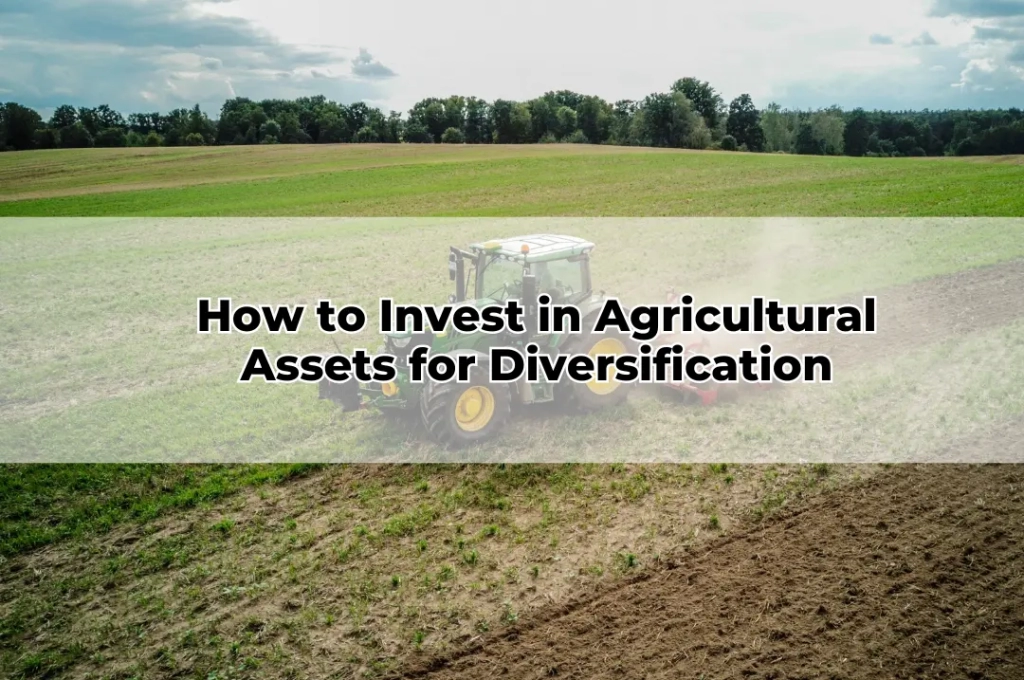How to Invest in Agricultural Assets for Diversification
Table of Contents
ToggleAgricultural investments have long been an overlooked asset class, yet they offer significant potential for diversification. With global demand for food increasing and farmland being a finite resource, investing in agriculture can provide stability, inflation protection, and consistent returns. For investors seeking to fortify their portfolios, agricultural assets can act as a hedge against economic volatility.
Understanding Agricultural Investments
Agricultural investments encompass various asset types, including farmland, agribusinesses, commodities, and agricultural technology. Each investment avenue offers unique benefits and risks, necessitating careful evaluation. Understanding these distinctions helps investors align their choices with their financial objectives.
The Appeal of Agricultural Investments
Agriculture remains an essential industry, making it a resilient sector. Factors such as population growth, food security concerns, and evolving consumer preferences drive sustained demand. Additionally, agricultural assets often display low correlation with traditional financial markets, providing a diversification advantage.
Different Ways to Invest in Agriculture
Investors can access agricultural investments through multiple avenues, including direct farmland ownership, agricultural exchange-traded funds (ETFs), agribusiness equities, agricultural real estate investment trusts (REITs), and private equity funds. Each method varies in accessibility, capital requirements, and risk exposure.
Investing in Farmland: Pros and Cons
Farmland investment is an attractive option due to its income-generating potential and long-term appreciation. However, considerations such as land management, water access, and climate risks must be factored in. Investors may opt for direct ownership or participate in managed farmland funds to mitigate operational burdens.
The Role of Agricultural Commodities
Commodities such as wheat, corn, soybeans, and livestock present an opportunity for investors to gain exposure to agricultural markets without owning physical land. Investing through futures contracts, ETFs, or mutual funds allows investors to benefit from price movements driven by supply and demand dynamics.
Agribusiness Stocks and REITs
Investing in publicly traded agribusiness companies—such as fertiliser manufacturers, seed producers, and agricultural machinery firms—offers exposure to the sector’s profitability. Similarly, agricultural REITs provide a more passive approach, offering investors access to farmland income without direct land ownership.
Technological Innovations in Agriculture Investments
Precision farming, automated irrigation systems, and agtech advancements are revolutionising the agricultural industry. Investing in agricultural technology startups or companies integrating smart farming solutions can yield substantial returns as the sector modernises.
Risks and Challenges in Agricultural Investing
While agricultural investments provide diversification benefits, they also come with unique challenges. Weather volatility, regulatory changes, and geopolitical factors can impact returns. Understanding and mitigating these risks through strategic asset allocation is essential.
Tax Considerations for Agricultural Investments in Australia
Investing in agricultural assets in Australia entails specific tax implications, including capital gains tax (CGT), land tax, and income tax on rental yields. Engaging with a qualified financial adviser ensures compliance with tax regulations and maximises investment efficiency.
How to Get Started with Agricultural Investments
Investors keen on entering the agricultural sector should begin with thorough research and financial planning. Consulting a professional financial adviser in Toowoomba can provide tailored insights and strategies to navigate the complexities of agricultural investments effectively.
Conclusion
Agricultural investments offer an invaluable opportunity for diversification, long-term growth, and inflation hedging. By carefully selecting the right investment vehicles and mitigating associated risks, investors can enhance their portfolios with stable and sustainable returns. Engaging a Toowoomba Financial Adviser ensures informed decision-making in this evolving sector.









